Vanilla extract is one of the most common spices in a baker’s arsenal. Cake artists and bakers go through it by the case. However, for many home bakers, bottles of vanilla extract can be sitting in the spice pantry for years, leaving some to wonder “Is my vanilla extract still good?” or “Does vanilla extract go bad?”
Luckily, we will dive into how long vanilla extract is good, proper storage techniques and other questions you may have relating to this delightful spice.
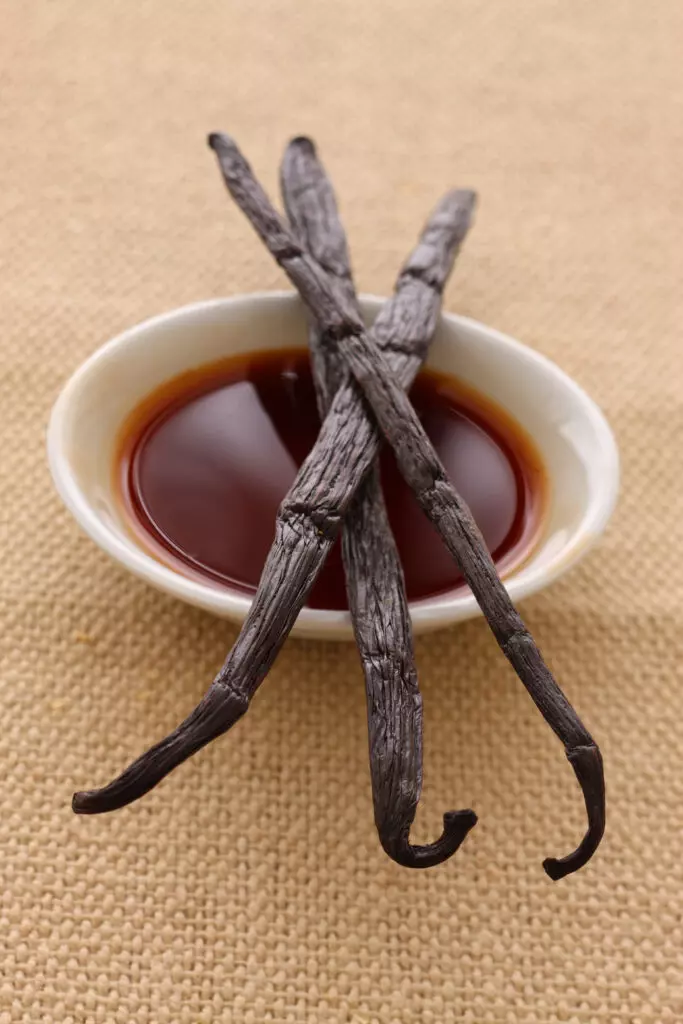
Table of Contents
Does Vanilla Extract Go Bad?
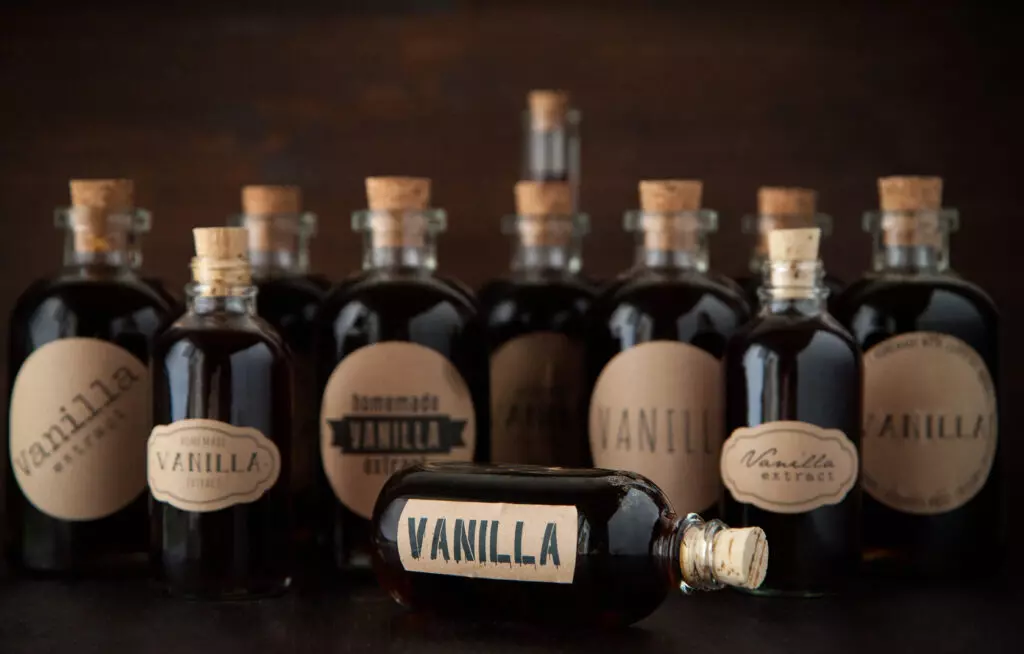
If stored properly, pure vanilla extract should have an indefinite shelf life. Imitation vanilla extract generally has a shelf life of three to four years and is marked by the expiration date on the bottle. At the expiration date, imitation vanilla extract will begin losing it’s potency. As long as it is not showing signs of going bad, you can still continue using it six months to a year after it’s expiration date. Though, I would add more to the recipe to make up for the weakened flavor.
However, both pure and imitation vanilla extract can go bad if not stored correctly.
How Can You Tell If Your Vanilla Extract Has Gone Bad?
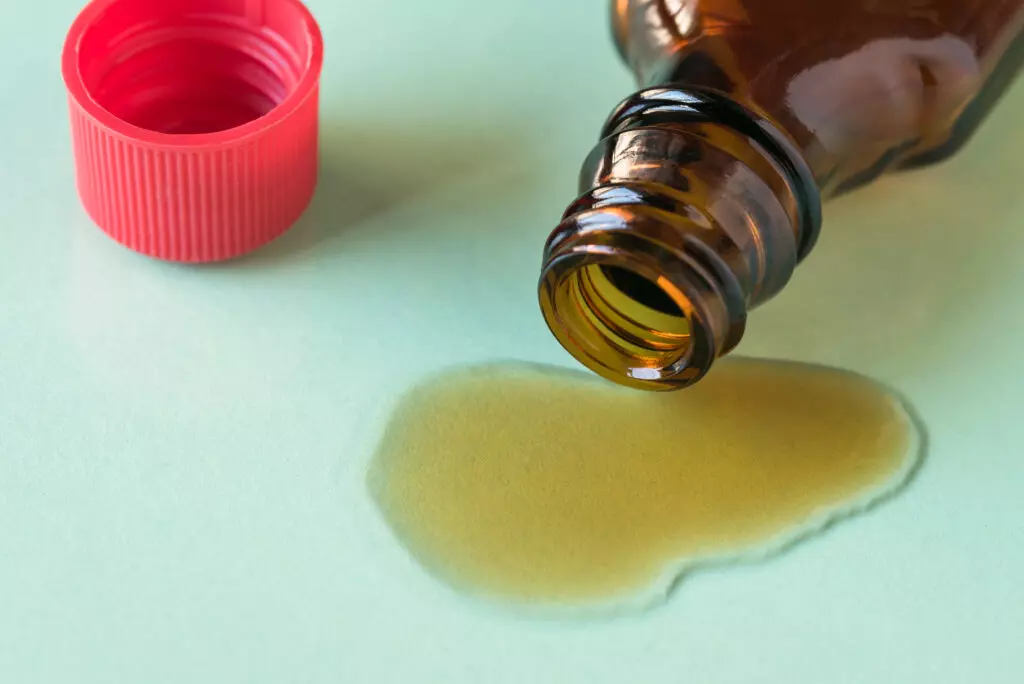
You can tell if your vanilla extract is bad if you notice any of the three red flags:
- If you notice mold in the lid or anywhere inside the bottle, it is definitely time to replace.
- If you notice an unpleasant oder, it is probably time to through out. Both pure and imitation vanilla extract should have a pleasant vanilla aroma.
- If it looks cloudy or you notice anything floating in your vanilla extract, it is probably time to replace.
As I always say, when in doubt throw it out.
How to Properly Store Vanilla Extract
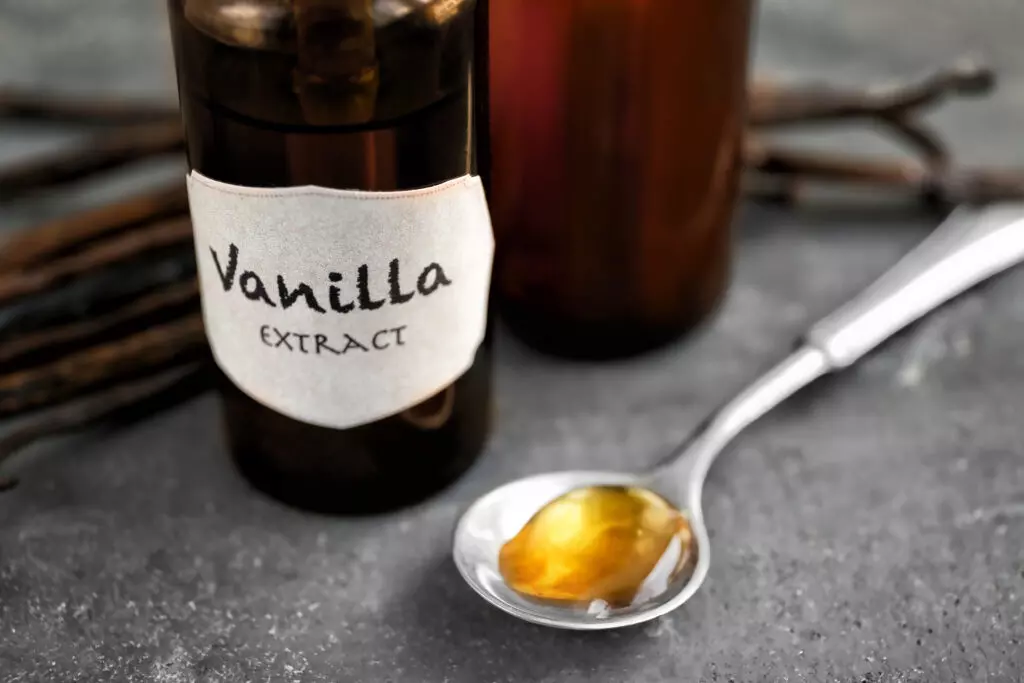
While compared to many foods, vanilla extract is a pretty low maintenance spice. However, it is sensitive to heat, cold, light and air. I would say the most important storage consideration is making sure your bottle has a tight fitting lid. This protects it from air and moisture, which is your biggest mold threat. However, given the alcohol content of pure vanilla extract, your mold risk is pretty low.
Vanilla extract is best stored in a dark place at room temperature (between 60 and 80 degrees Fahrenheit). I would keep away from the oven, dishwasher and the refrigerator as the swings in temperature may degrade the quality of the vanilla extract.
Often both pure and imitation vanilla extract comes in a darkened bottle to protect it from the light. If it doesn’t however, I would transfer to a dark bottle with a tight fitting lid as light can also degrade its quality.
What is the Difference Between Pure Vanilla Extract and Imitation Vanilla Extract?
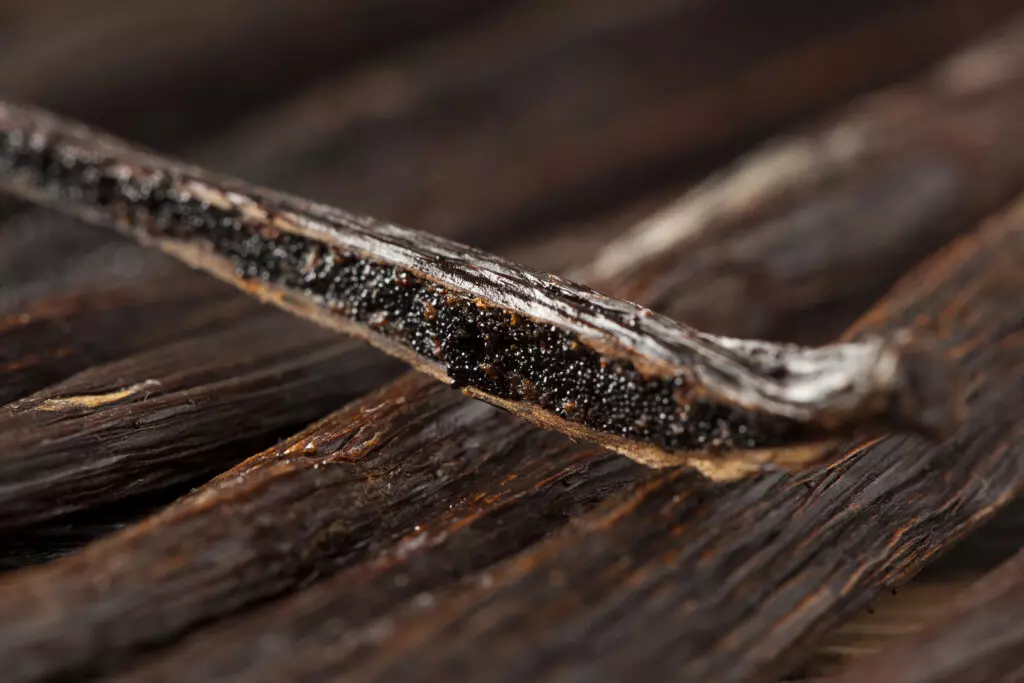
Pure vanilla extract is made by soaking vanilla beans in a combination of ethyl alcohol and water to extract their complex flavors and aromas. The final product is made up of approximately 10% vanilla bean, 35% alcohol and 55% water and is regulated by the government. While vanillin is the primary flavor compound extracted from the vanilla bean, it also contains over a hundred other flavor compounds that give pure vanilla extract a richer flavor than imitation.
Imitation vanilla extract, also known as natural vanilla flavoring, is made from the flavor compound vanillin that is synthetically produced in a lab. Because imitation vanilla extract only contains the vanillin flavor compound, it does not contain the same rich flavor as pure vanilla extract. It also typically contains only 2-3% alcohol.
Besides the deeper flavor profile of pure vanilla extract over imitation, another big difference between the two is price. Because vanilla beans are very labor intensive to cultivate, pure vanilla extract is considerably more expensive than imitation.
As discussed earlier in the article, pure vanilla extract and imitation vanilla extract have different shelf lives. While pure vanilla extract can have an indefinitely shelf life, with the flavors often getting deeper as it ages and the alcohol evaporates, imitation vanilla extract begins losing it’s potency after 3 or 4 years.
Frequently Asked Questions
Can you get sick from using expired vanilla extract?
Most likely not. As long as the vanilla extract was stored properly and has not begun to show signs of going bad (signs of mold, cloudy texture or rancid smell), you should be safe. The expiration dates on the bottles of imitation vanilla extract indicate when it may begin losing it’s potency.
Should you refrigerate or freeze vanilla extract to extend its life?
No. If anything, the cold will degrade the quality of your vanilla extract and shorten the life. The ideal storage temperature for both pure and imitation vanilla extract is between 60 and 80 degrees Fahrenheit.
Final Thoughts on Vanilla Extract
The sweet, rich flavor and fragrance provided by vanilla extract has made it a staple in many things sweet. I hope this article has answered some questions you may have had on this essential ingredient. Happy cooking!
Check out the following articles for more great storage guides:
Can You Freeze Egg Salad? Best Egg Salad Storage Tips!
How to Freeze Green Beans – Your Guide to Storing Fresh Green Beans
How Long Does Beef Broth Last in the Fridge? All Your Questions Answered
Also, subscribe to our YouTube Channel for some great videos!
